
Arrival in Agia Marina
Arriving on Leros
I arrived on Leros on a small ferry from
Patmos
with a few stops on small islands along the way.
It was a Dodekanisos Seaways
ferry that would continue on to Kalymnos and Kos.
Leros has two ferry ports on opposite sides of the island.
My ferry arrived at
Agia Marina on the east coast,
close to where I would stay.
Lakki is the port on the west coast.
If the only ferry available that day is to "the wrong port",
take a taxi for the 5 kilometer ride to the other port.
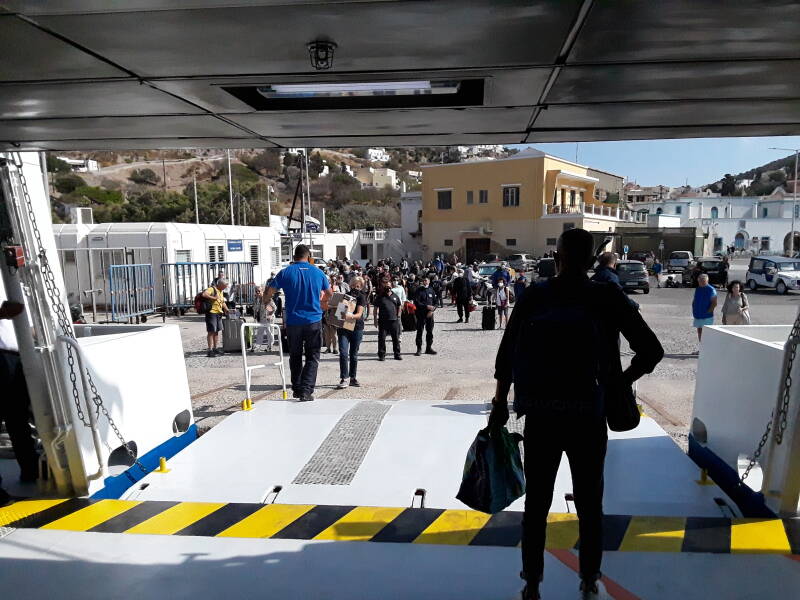
My ferry arrived in the early afternoon. Colorful fishing boats had returned from the morning's trip out to sea.
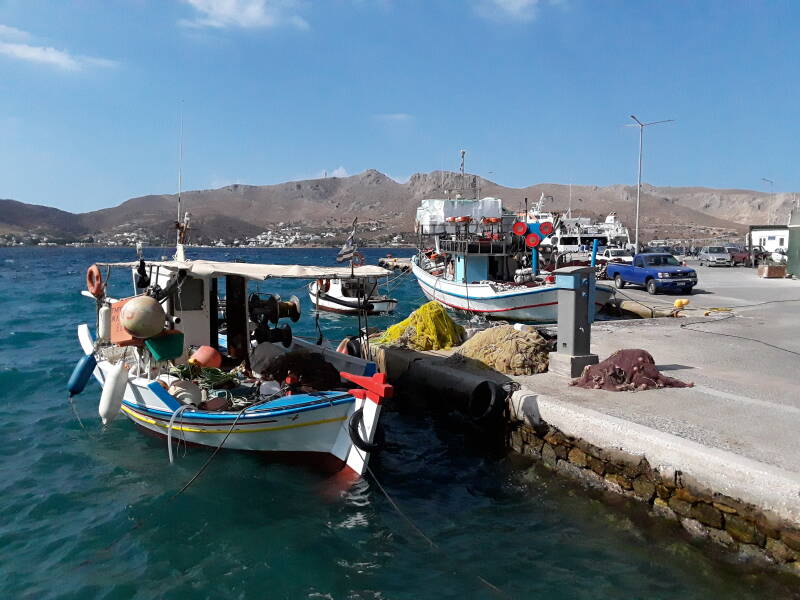
There's the ferry I arrived on. It would leave for Kalymnos and Kos after just a few minutes at the Leros ferry pier.
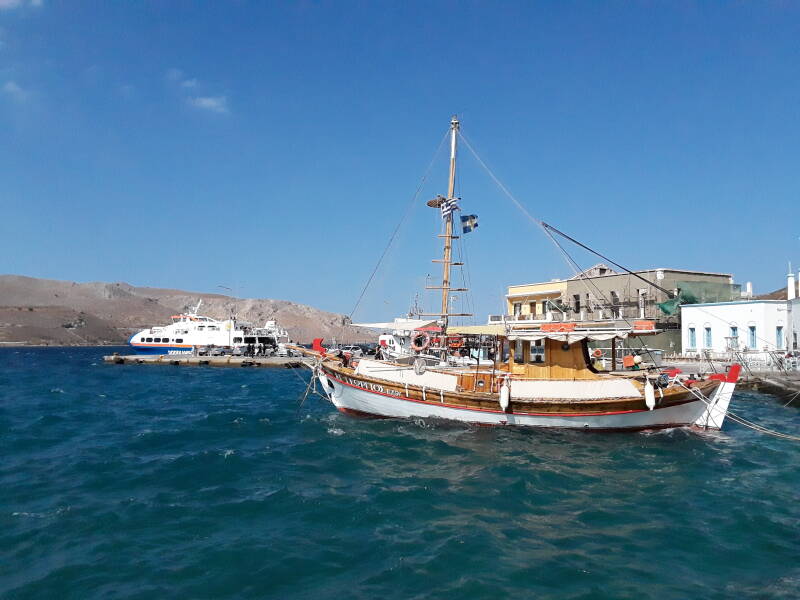
I would walk around the bay to its far side, visible in the distance here, to where I had a room reserved in Alinda. Tourism is pretty low-key on Leros when compared to other Aegean islands. Alinda is home to most of the tourist-oriented businesses.
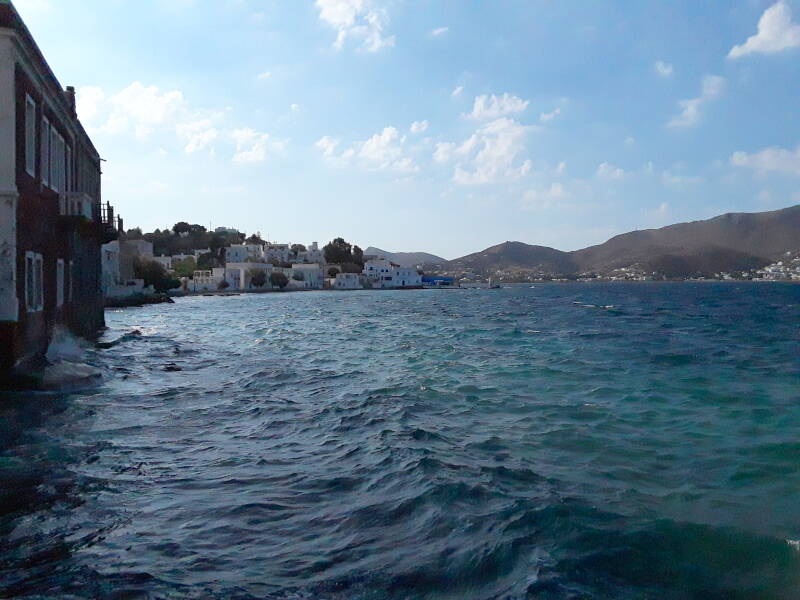
Leros has an airport at the north end of the island, beyond the distant hills in the above view. It has a 1,015 meter runway that can handle ATR 42 and Dash 8-100 type aircraft. Leros is a relatively small island to have an airport with regularly scheduled passenger flights. At least during the high season, Olympic Air flies to Athens, and Sky Express flies to Astypalaia, Kalymnos, Kos, and Rhodes.
It was a 2.8 kilometer walk from the Agia Marina ferry terminal to where I stayed.
Settling In
Guesthouses at Booking.comI had a room reserved at Aparthotel Papafotis. They have some apartments with kitchen and so on, and a wing with regular hotel-style rooms. Here's my room.
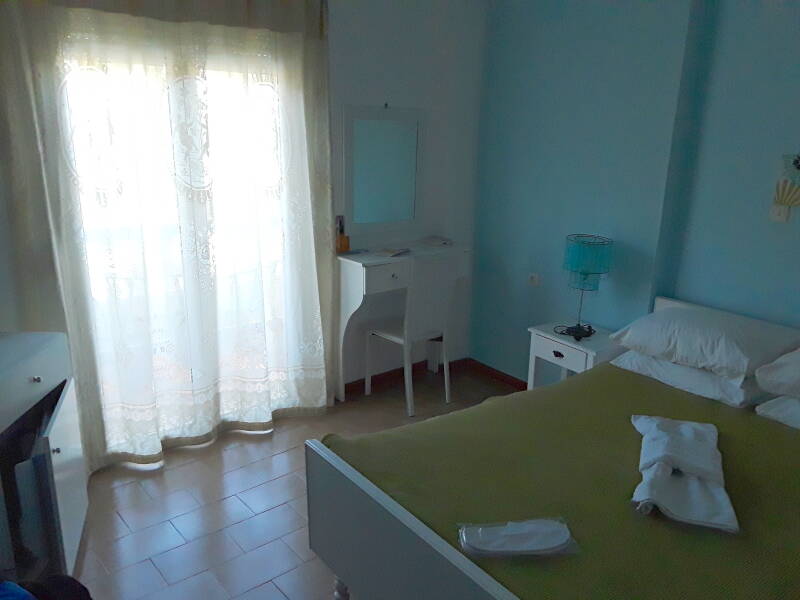
No kitchen, but I had a refrigerator.
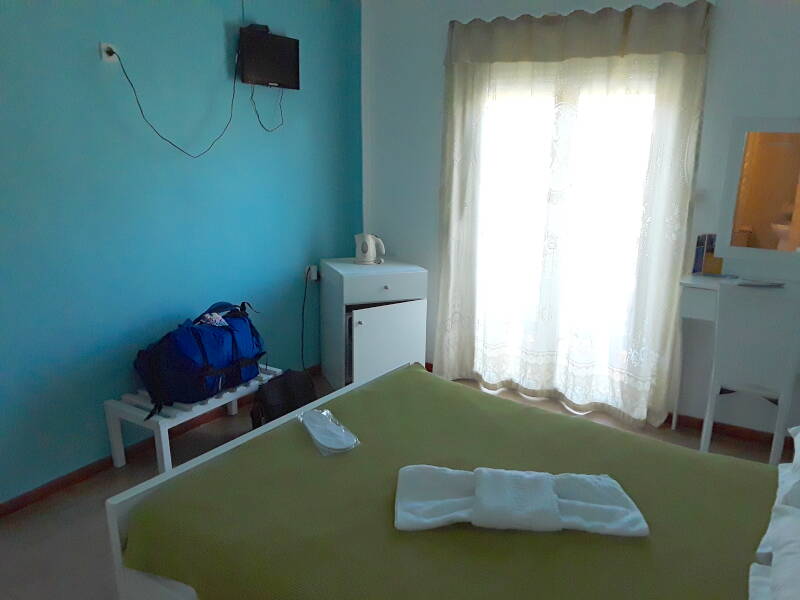
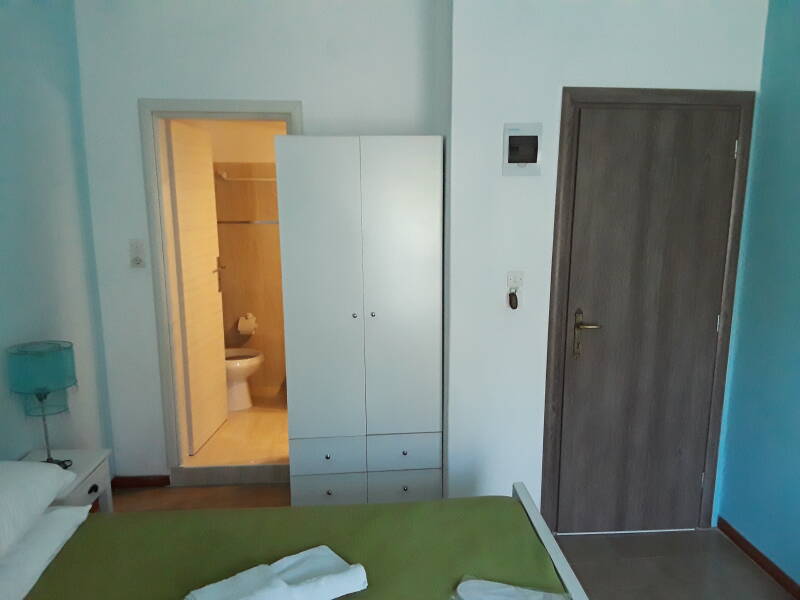
The room had a balcony with a nice view to the mountains.
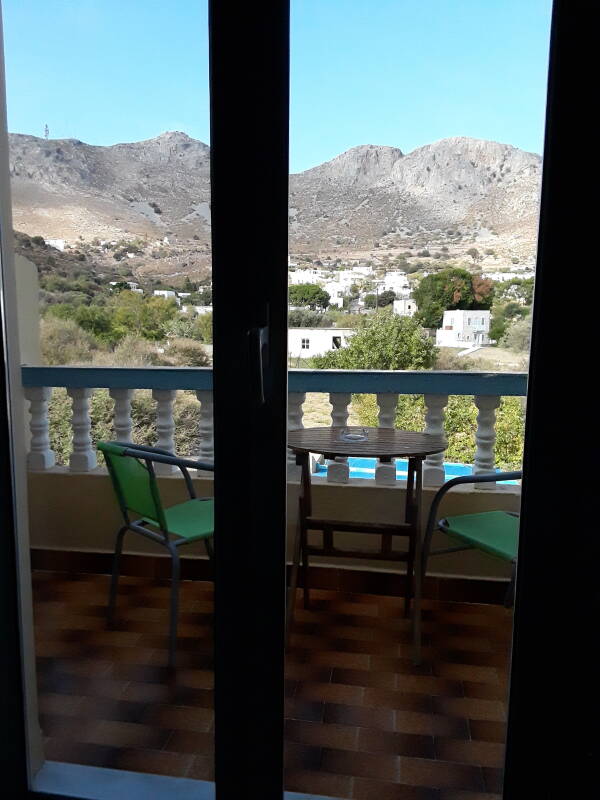
Back to Agia Marina
It had been a long walk around the bay with all my stuff. I had marched right around to get it over with.
I checked in, unpacked, cleaned up, and headed back out. Here's the view back to Agia Marina from across the road from where I was staying. The road along the bay is lined with guesthouses and tavernas. A supermarket was just a few blocks back toward the ferry pier.
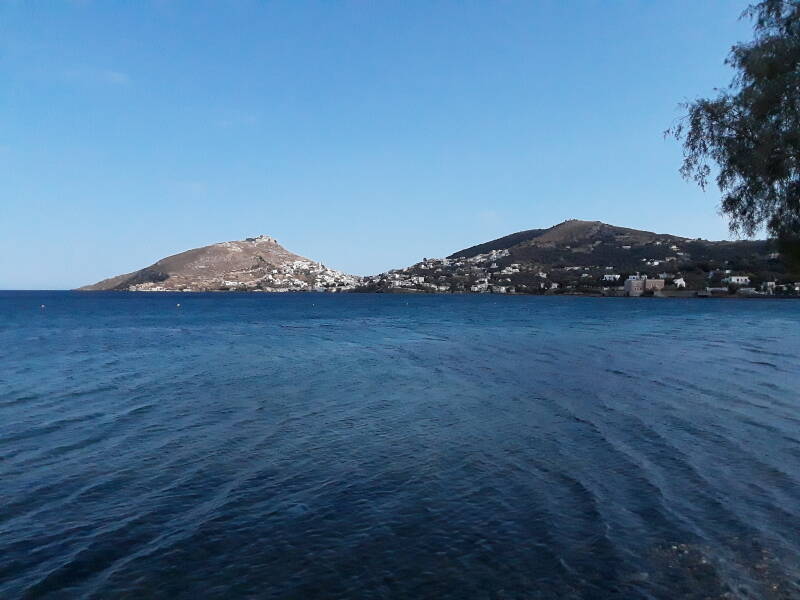
The ducks were enjoying the beach. Otherwise Leros was very quiet during the shoulder season late in a pandemic.
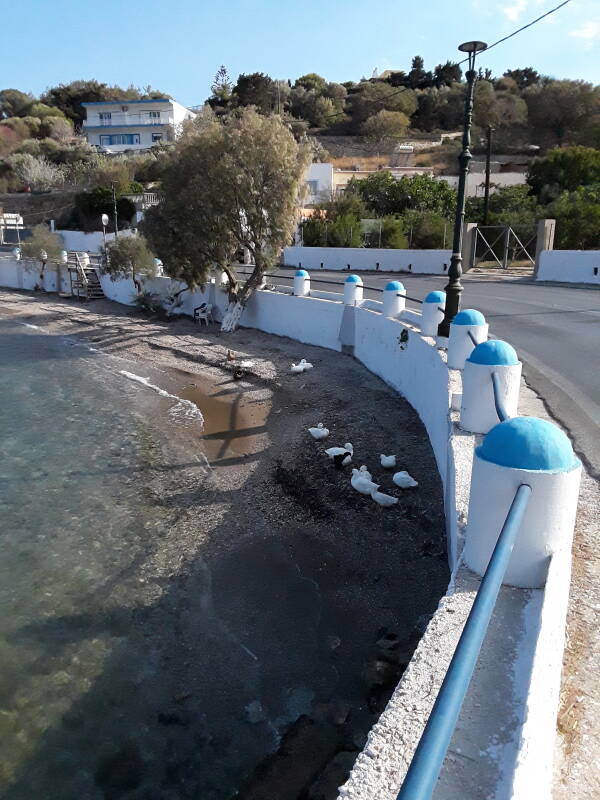
There was a roadside shrine along the bay waterfront.
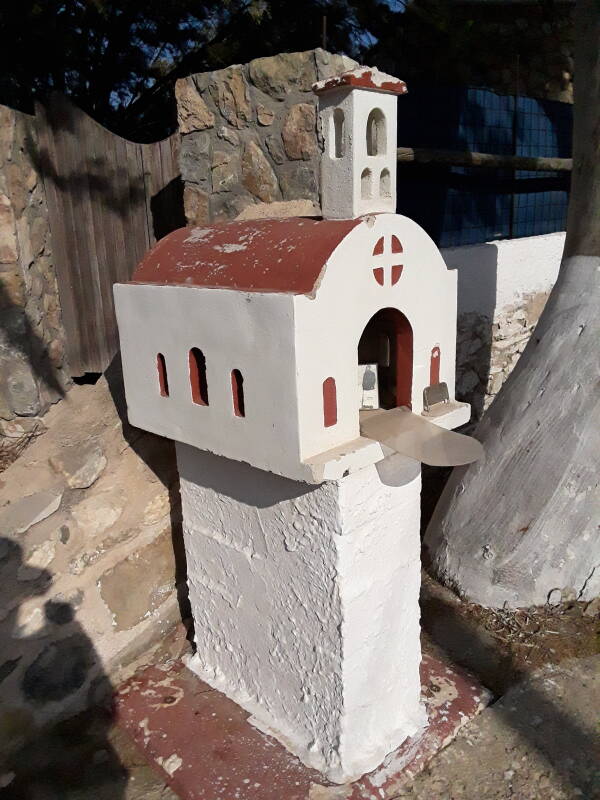
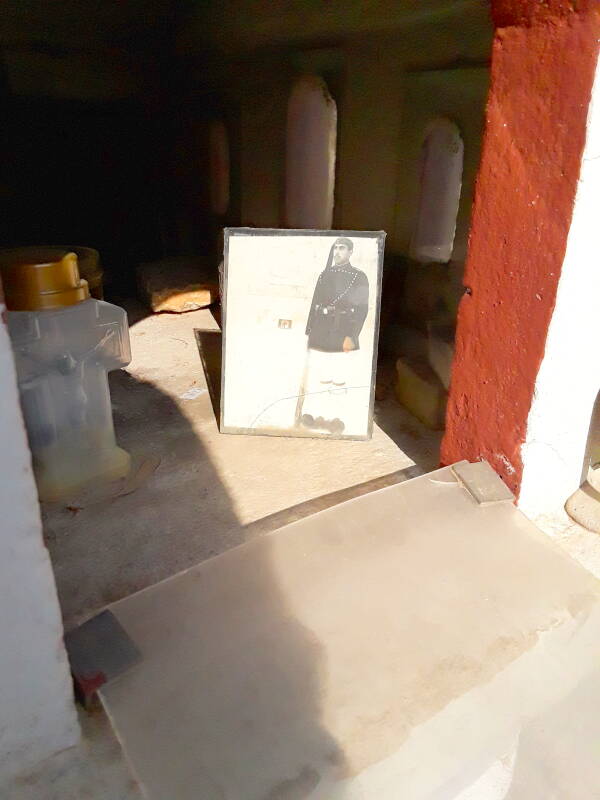
And, just a little further along, another one.
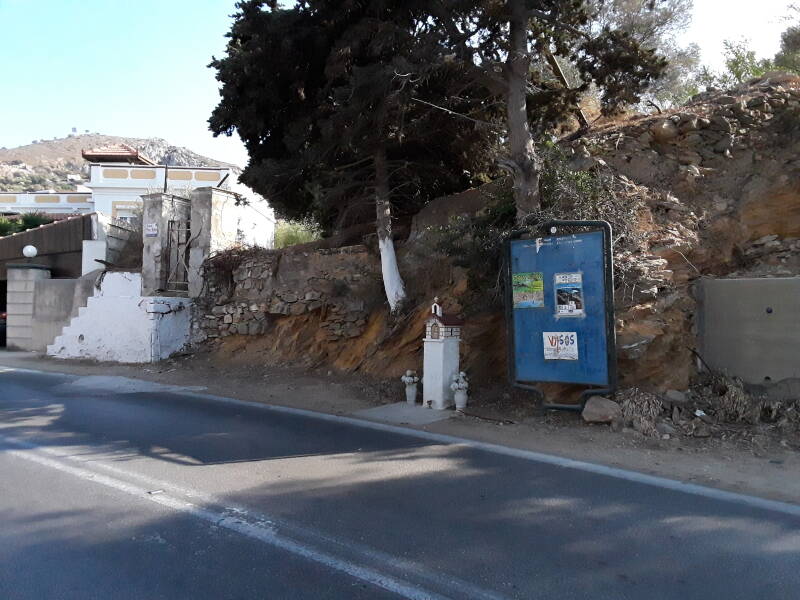
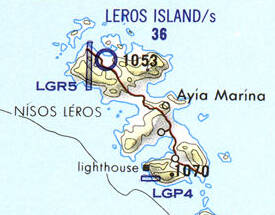
Greek islands are the peaks of mostly-submerged mountains. Or, in the case of Leros, a cluster of three major peaks with smaller peaks just barely protruding out of the sea around them. This gives the main island three high areas joined by two isthmuses. Or whatever you call an isthmus except there are two of them.
There were TV and FM broadcast transmitters on the mountain facing my balcony. That's a few kilometers behind us in the below picture. Lakki is over the ridgeline we see below. The people living in Lakki and especially those around Pandeli beach close to the bottom of the far side of this ridgeline are in its radio shadow. They wouldn't receive the TV and FM signals, or at best the signals would be very marginal.
Rather than install multiple TV/FM transmitters around an island where only about 8,000 people live, the government has installed passive reflectors. They're flat metal panels that look like blank billboards, aligned and tilted to reflect the signals in the desired direction. You can see a pair of them on the horizon, reflecting signals down to the other side in two directions. People on the other side point their antennas at the reflectors. See this Electronics World magazine for an article with pictures and more details.
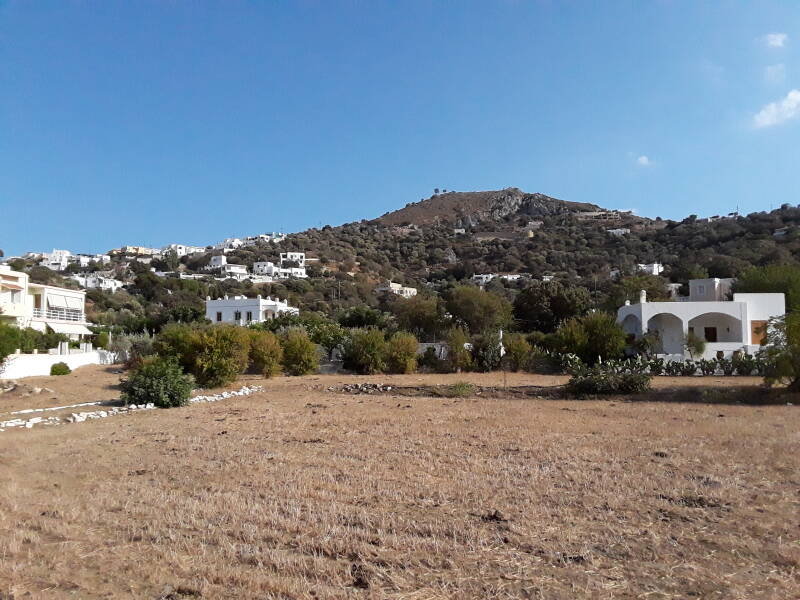
Now with satellite downlinks and Internet streams for television, plus Internet streams carrying what used to be broadcast on FM radio, there is less demand for terrestrial FM and TV broadcast.
MWDXIt seems that the authorities in Greece have mostly abandoned the MW band to pirate broadcasters.
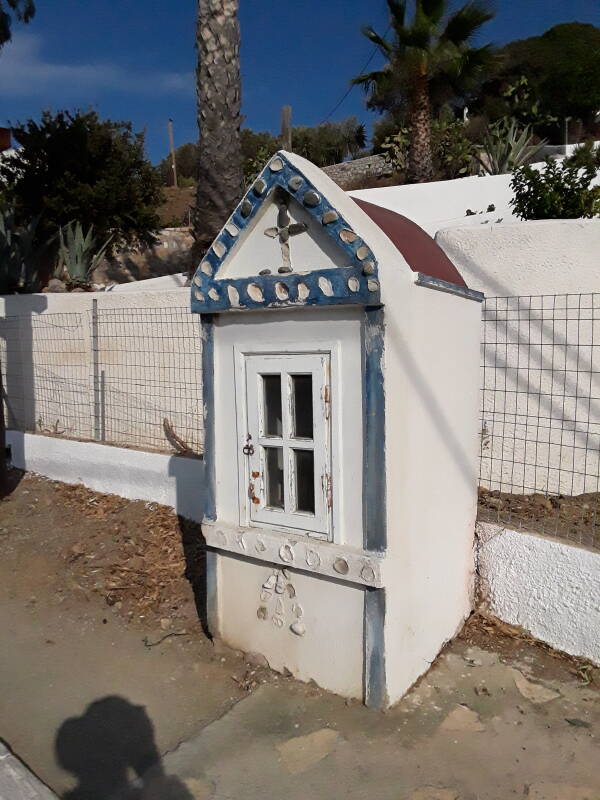
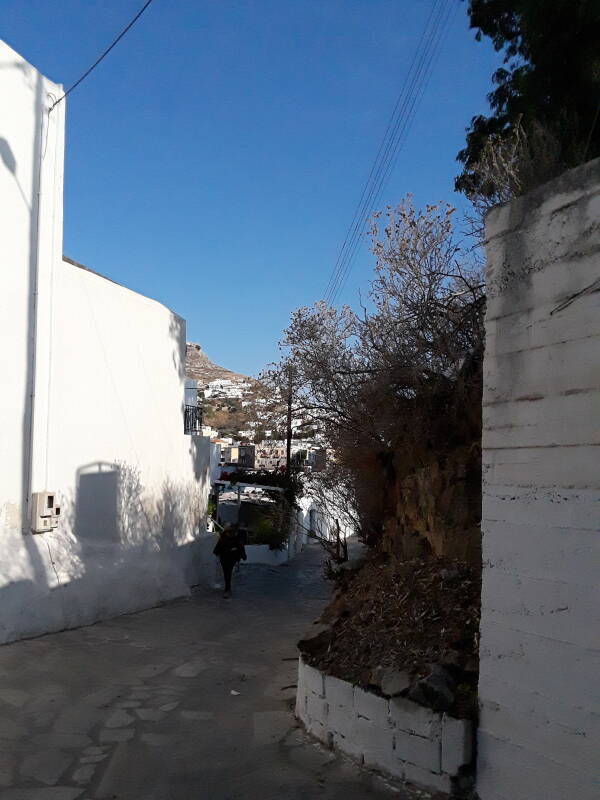
I continued toward the ferry pier where I had arrived, leaving the road to follow the small pedestrian lane that runs along the waterfront.
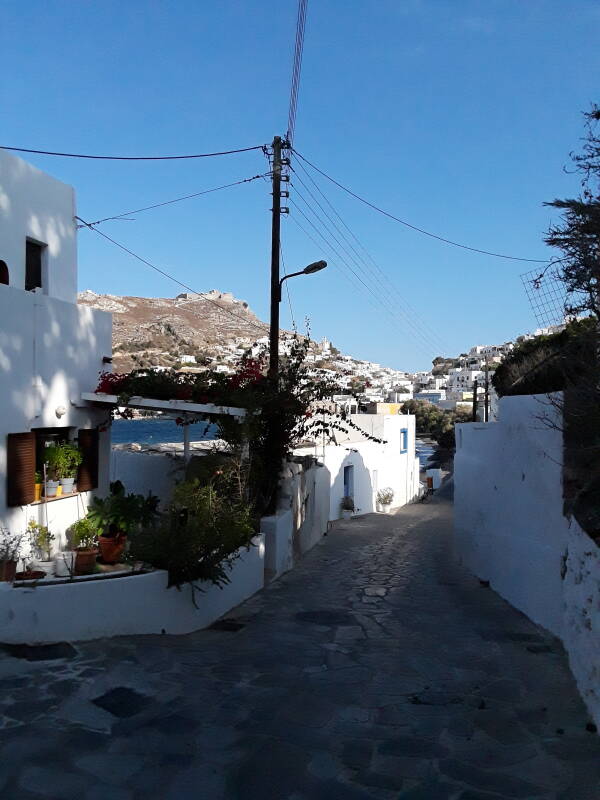
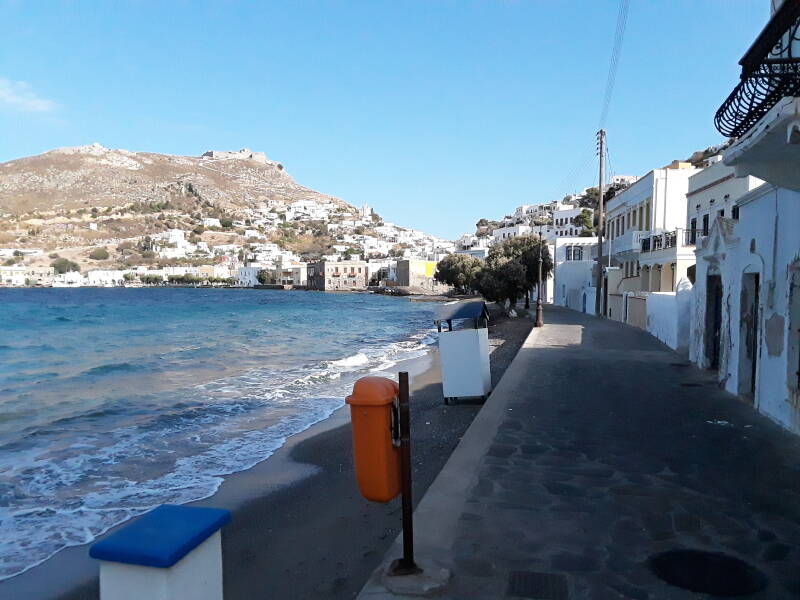
The ferry pier is at far left in the below picture. The early fourteenth-century Pandeli Castle is on the peak above the town, about 150 meters above the water.
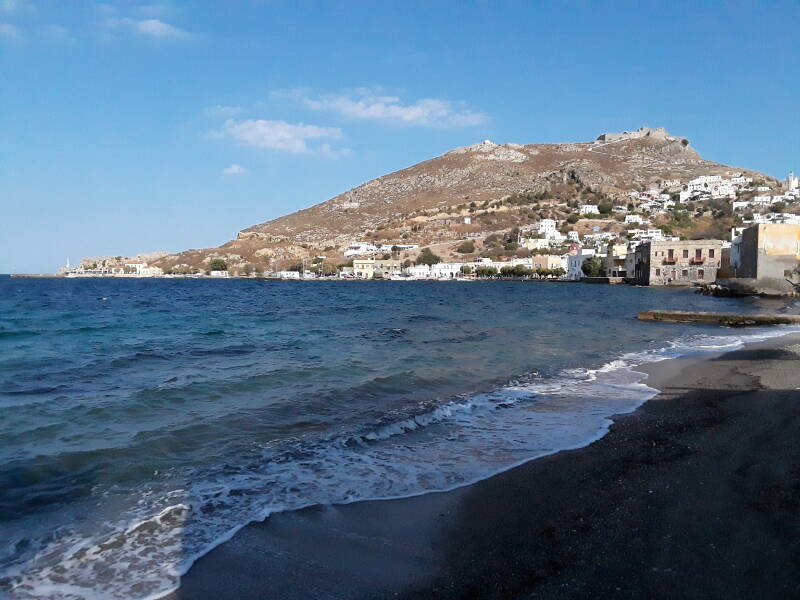
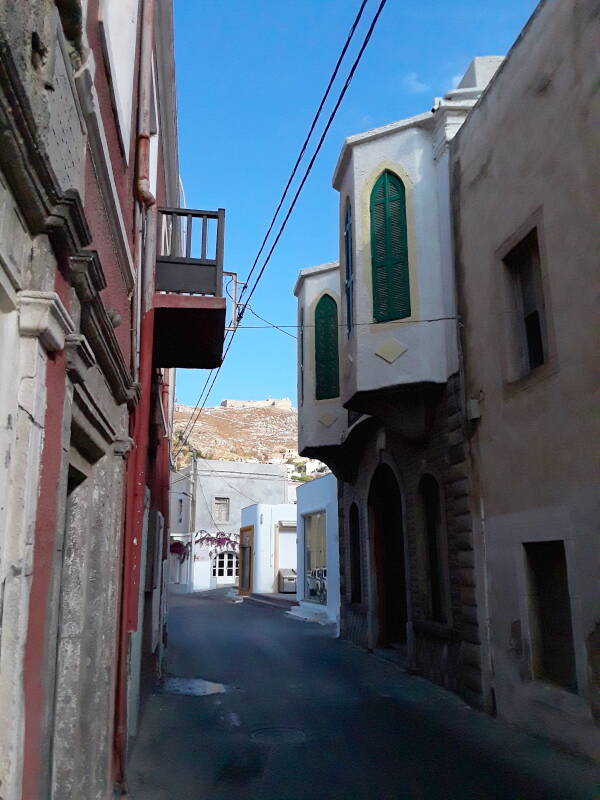
I was going to sit by the waterfront, but quickly decided that the strong wind would make that unpleasant. I moved back across the square to a small table in front of a cafe which became my every-morning breakfast place.
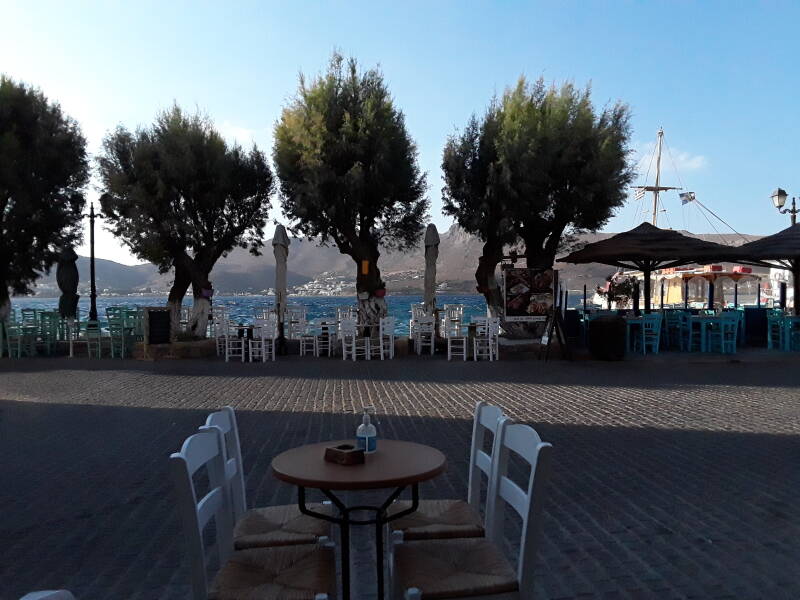
The wind later calmed down somewhat.
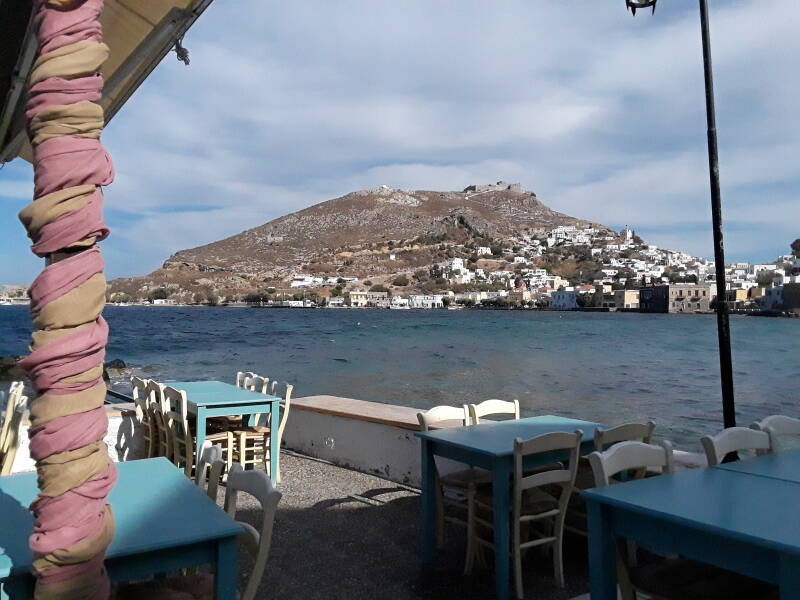
Leros has a good reputation for food, as it should. Of course there is great seafood, like this grilled calimari. Also, it's very close to Asia Minor, and on trade routes to North Africa.
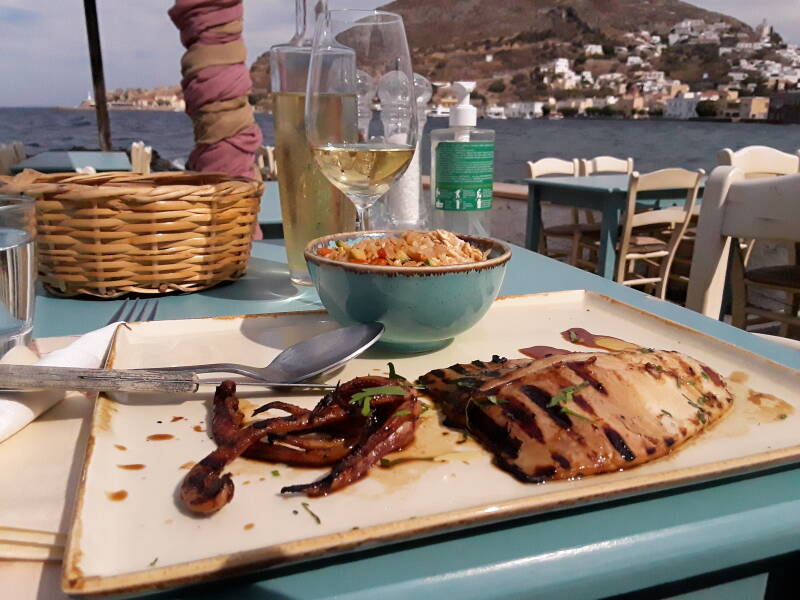
And, showing the influence from the 1922–1943 Italian occupation of the Dodecanese, this cephalopod was listed as καλαμάρι or kalamari on the menu even though κεφαλόροδα is a Greek word. Sorry to be so pedantic, but I did once work on an icthyology project.
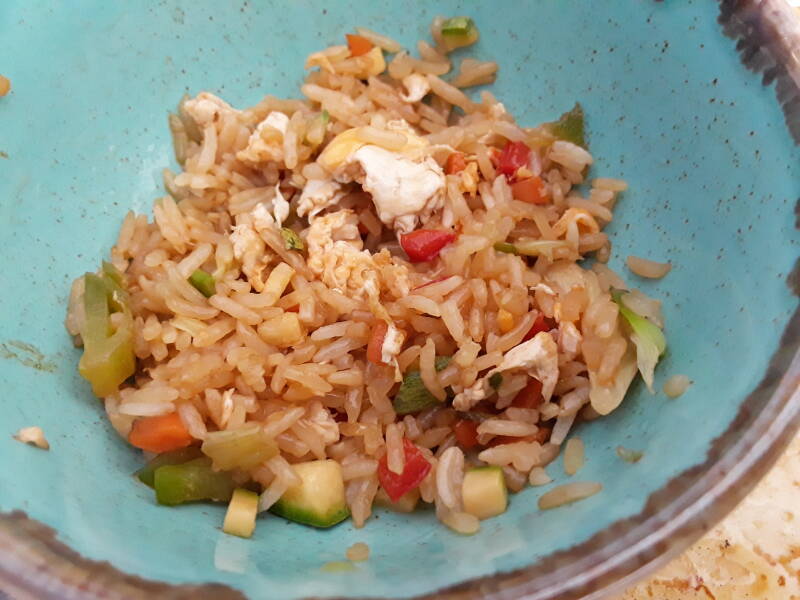
And it seems that καλαμάρι is the Greek word for "squid" after all...
Or, Continue Through Greece: